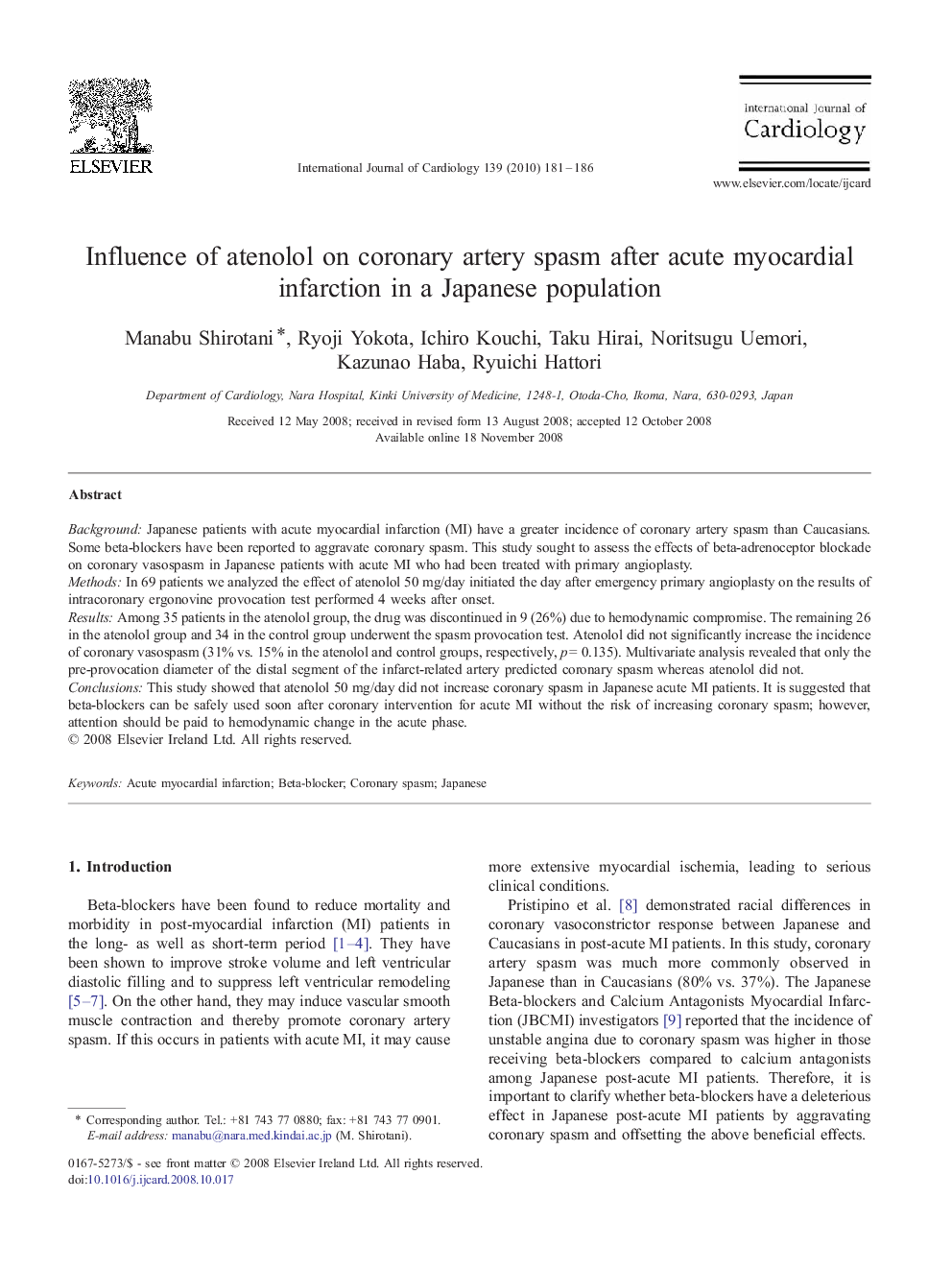| Article ID | Journal | Published Year | Pages | File Type |
|---|---|---|---|---|
| 2932885 | International Journal of Cardiology | 2010 | 6 Pages |
BackgroundJapanese patients with acute myocardial infarction (MI) have a greater incidence of coronary artery spasm than Caucasians. Some beta-blockers have been reported to aggravate coronary spasm. This study sought to assess the effects of beta-adrenoceptor blockade on coronary vasospasm in Japanese patients with acute MI who had been treated with primary angioplasty.MethodsIn 69 patients we analyzed the effect of atenolol 50 mg/day initiated the day after emergency primary angioplasty on the results of intracoronary ergonovine provocation test performed 4 weeks after onset.ResultsAmong 35 patients in the atenolol group, the drug was discontinued in 9 (26%) due to hemodynamic compromise. The remaining 26 in the atenolol group and 34 in the control group underwent the spasm provocation test. Atenolol did not significantly increase the incidence of coronary vasospasm (31% vs. 15% in the atenolol and control groups, respectively, p = 0.135). Multivariate analysis revealed that only the pre-provocation diameter of the distal segment of the infarct-related artery predicted coronary spasm whereas atenolol did not.ConclusionsThis study showed that atenolol 50 mg/day did not increase coronary spasm in Japanese acute MI patients. It is suggested that beta-blockers can be safely used soon after coronary intervention for acute MI without the risk of increasing coronary spasm; however, attention should be paid to hemodynamic change in the acute phase.
